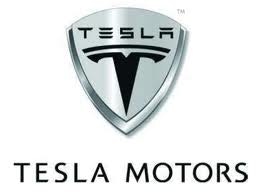Electric-car maker Tesla Motors Inc (NASDAQ:TSLA) shocked investors yesterday when it reported earnings, which sped past analyst estimates. Shares of Tesla were trading down ahead of the earnings call, only to surge as much as 15%, to $155.85, on the news in after-hours trading. At a glance, the results can be confusing. That’s because Tesla included both GAAP and non-GAAP figures as a way to show sales under the company’s new leasing program.
Va-va-voom
The California-based automaker posted a profit of $0.05 a share on a non-GAAP basis with lease accounting, versus Wall Street’s expectations for a $0.17 loss. However, profit jumped to $0.20 a share in the quarter when you exclude the leasing effect. This lease financing, which Tesla Motors Inc (NASDAQ:TSLA) only recently introduced, accounted for 30% of Model S deliveries in the period. This is a good indication that the financing program is working to increase demand.

The gross margin was especially attractive in the second quarter considering Tesla Motors Inc (NASDAQ:TSLA) received 25% less revenue from the sale of ZEV credits in the quarter compared to Q1. Specifically, the company earned $51 million selling pollution credits in the quarter ended June 30, from $68 million last quarter. From record Model S sales, to significant cost improvements, Tesla continues to charge ahead. Tesla’s stock is up more than 300% on the year.
However, near-term earnings don’t matter nearly as much for Tesla Motors Inc (NASDAQ:TSLA) as they do for traditional automakers. Most Tesla shareholders, myself included, are betting on results that are at least seven to 10 years out. Mike Ramsey with the Wall Street Journal touched on this phenomenon recently writing, “Tesla Motors Inc. Chief Executive Elon Musk doesn’t run his Silicon Valley electric car maker by traditional auto industry rules, and investors are so far rewarding him by putting a value on the company that defies easy comparisons.”
Tesla Motors Inc (NASDAQ:TSLA)’s stock price of around $156 almost seems fair when looking to the next decade, particularly if you believe Musk’s claim that Tesla can reach 500,000 deliveries a year, and a market cap of $43 billion by 2022. This ambitious goal, of course, takes into account future Tesla EVs, including the Model X and mass market Gen III. On yesterday’s call Tesla CEO Elon Musk said the Gen III should cost around $35,000, assuming the absence of tax incentives, and coming with a battery capable of at least a 200-mile range.
That’s impressive when compared to competing electric vehicles on the roads today. For example, Ford Motor Company (NYSE:F)‘s Focus EV costs $35,200 and only offers a range of 76 miles, while the Nissan Leaf sells for $28,800 with a range of just 73 miles. The Toyota Motor Corporation (ADR) (NYSE:TM) all-electric Rav4 is currently the closest with an EPA range of 103 miles and priced at $49,800. It’s also important to remember that Tesla Motors Inc (NASDAQ:TSLA) has kept up lucrative partnerships with some of these more established automakers, including Toyota.




